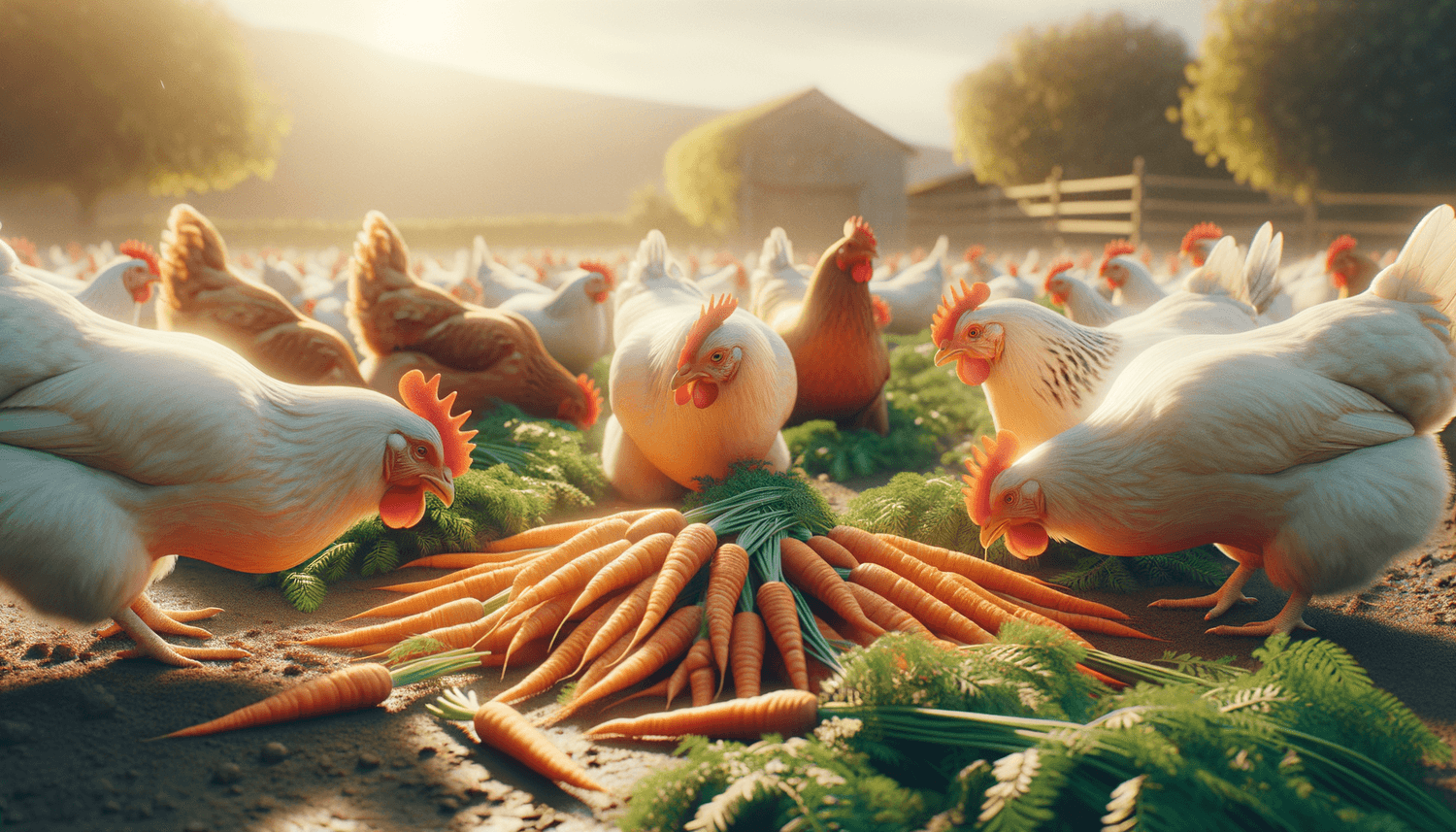Yes, chickens can eat carrot leaves. These leafy greens are safe and nutritious for chickens, offering a good source of vitamins and minerals. As with any treat, they should be given in moderation as part of a balanced diet.
Quick Summary
- Chickens can eat carrot leaves.
- Carrot leaves are nutritious and non-toxic to chickens.
- Key benefits include vitamins and minerals; moderation is key to avoid digestive issues.
- Recommended as a supplement to the main diet, not as a sole food source.
Overview of Carrot Leaves
Carrot leaves are the green, leafy tops of the carrot plant. They’re a good source of nutrients such as vitamin K, which is important for blood clotting, and several other vitamins and minerals that are beneficial to chickens’ health.
Benefits and Risks of Carrot Leaves for Chickens
Carrot leaves can be a healthy addition to a chicken’s diet. They provide vitamins A, C, and K, along with potassium and calcium. However, they should not replace a chicken’s primary diet of grains, as they do not provide complete nutrition on their own. If fed in excessive amounts, they may contribute to digestive issues.
Feeding Guidelines
To properly feed carrot leaves to chickens, introduce them slowly into the diet and observe for any adverse reactions. They can be mixed with other greens or given fresh, ensuring they are clean and pesticide-free. A handful of carrot leaves per chicken, a few times a week, is ample.
Alternatives
If for any reason carrot leaves are unavailable, other safe and healthy alternatives for chickens include kale, spinach, and Swiss chard. These also provide essential nutrients without the risk of toxicity.
Expert Opinions
Poultry nutritionists and veterinarians commonly recommend carrot leaves as a healthy treat for chickens. Studies have shown the benefits of leafy greens in poultry diets, contributing to the overall health and vitality of backyard flocks.
Frequently Asked Questions
After learning about the benefits of carrot leaves for chickens, you might have some additional questions. Here are the answers to a few common queries.
How often can I feed carrot leaves to my chickens?
Carrot leaves can be fed to chickens in small amounts a few times a week to ensure a balanced diet.
Are there any parts of the carrot plant that are toxic to chickens?
No, all parts of the carrot plant, including the leaves and the roots (carrots), are safe for chickens to consume.
Do I need to chop the carrot leaves before feeding them to my chickens?
It’s not necessary to chop them, but doing so can make it easier for chickens to eat and digest the leaves.

















